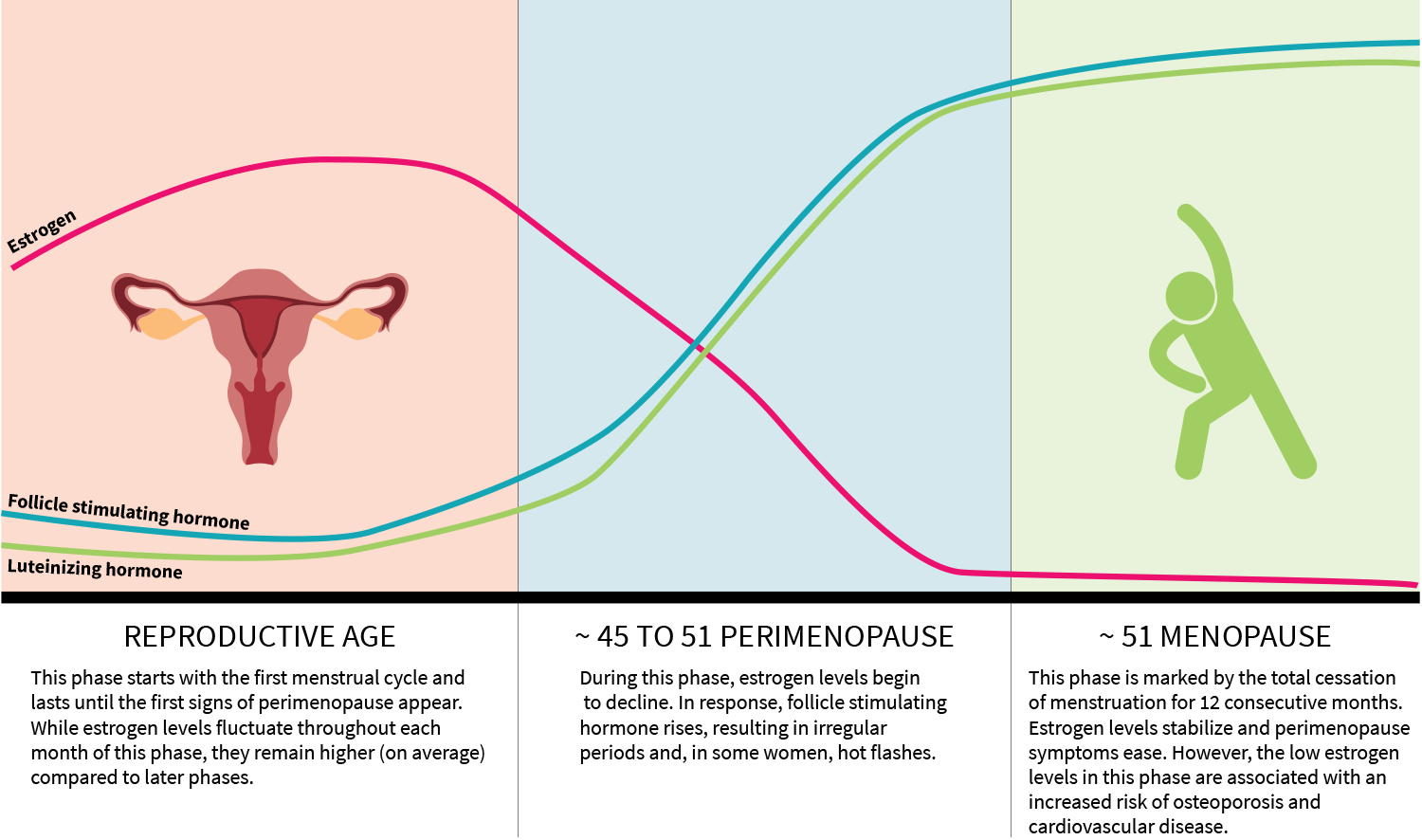Menopause is a natural condition that occurs as women age. Over time, a woman’s ovarian follicles and granulosa cells diminish. Given these cells are the main producers of estradiol and inhibin[1] (a hormone that tells the pituitary gland to make less follicle-stimulating hormone), the body’s hormonal balance shifts toward lower estrogen and progesterone levels and increased follicle-stimulating hormone and luteinizing hormone levels. This hormonal profile results in irregular menstrual cycles, which ultimately stop altogether.
Hormonal variations across a woman's lifetime



